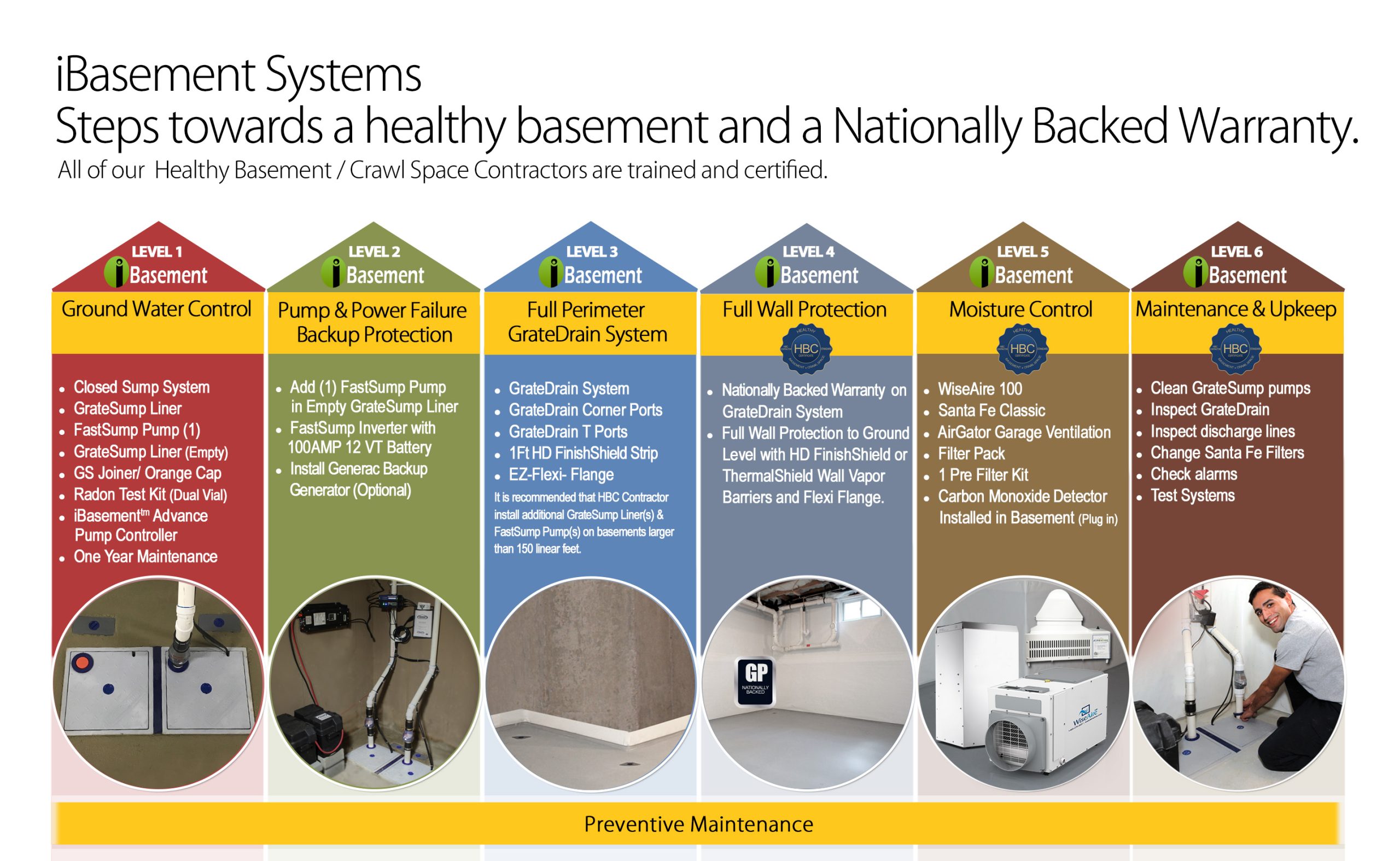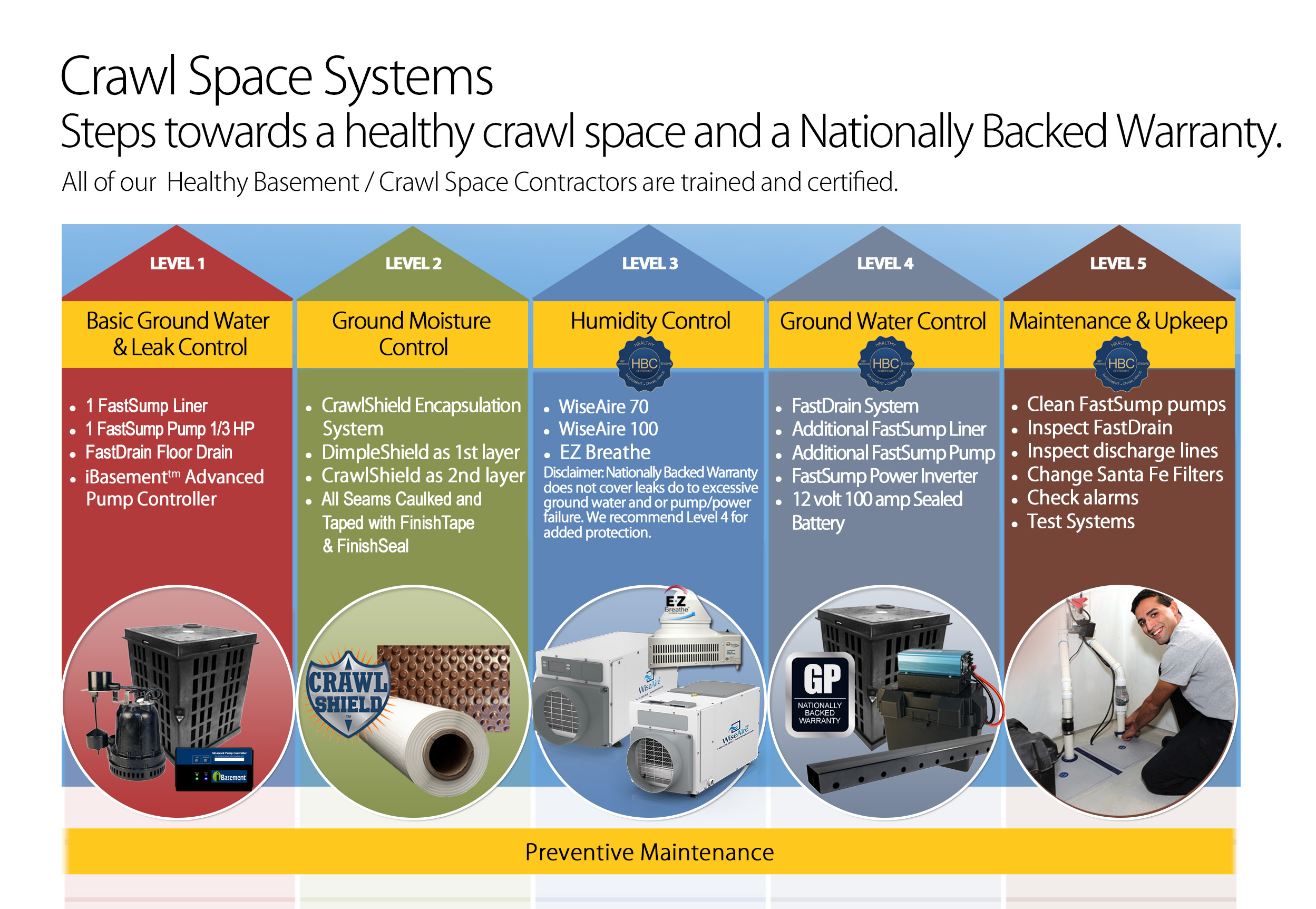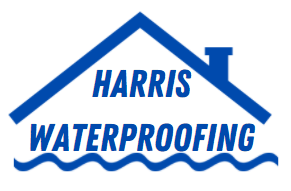Why is my basement leaking?
Basements leak every time the soil around the foundation is oversaturated with groundwater, during heavy storms, snow melt and at any time if the footing (French) drain is clogged or faulty.
What is a French Drain?
The French or footing drain is a line of clay or corrugated pipe installed by the footing, around the entire external perimeter of the basement. Its job is to collect groundwater and divert it away from the foundation.
Do I need a French Drain?
If your home is less than 100 years old, chances are it already has a French drain. That is how long it´s been used to control groundwater. Yet, if your basement is still leaking, it’s probably because it is clogged or collapsed. You will either need to dig out your foundation and replace the pipe or have an Interior Drainage System installed along the interior perimeter of your basement, instead.
What is an Interior Drainage System?
An interior basement drainage system replaces the old-fashioned French drain with a few advantages. If there is a problem with it, you do not need to excavate your yard. It can be fixed from the interior of the basement. Interior drainage systems come in all shapes and sizes. Some contractors use generic corrugate pipes and some, like Harris Waterproofing, use exclusive, patented drainage systems, that are specifically designed to deal with groundwater in the basements. Among the many advantages of these proprietary systems, is the fact that they can be flushed to prevent clogs and serviced throughout the years without the need to jackhammer your basement.
What is a Sump Pump?
The sump pump is the heart of a waterproofing system. While the drainage system collects all the ground water that tends to pool around your foundation, it is the sump pump that will get it out and away from your basement. If the sump pump is out of commission, your basement may leak.
Do I need a battery-operated backup Sump Pump?
Sump pumps usually run out of your home’s electric power. The same storms, however, that are known to flood basements also tend to knock the power off. Without a battery backup, your sump pump will be down, just when you need it most.
Can I fix my basement with waterproofing paint?
Basement paint and other waterproofing coatings and sealants are commonly sold in hardware store as a DIY solution for wet basements as, at best, a temporary solution. That is because these sealants do not address the cause of basement leaks, which is the oversaturated soil and the resulting hydrostatic pressure causing the water to seep into the basement in the first place. Over time, the coating will crack, bubble or peel, and the water will, once again, find its way in.
Why does my basement smell musty?
That infamous musty odor indicates the presence of mold in your basement, even if you can’t see mold spots yet. Mold is a smelly fungus that loves damp and dark environments like a basement. Even in small concentrations it still releases spores and odors in the air.
Is mold in the basement dangerous?
Only a few species of mold – such as black mold — produce hazardous mycotoxins that can trigger serious health problems. Yet, every species of mold growing indoors releases spores which, in high concentrations, will negatively impact indoor air quality and trigger mild to severe allergy symptoms in sensitive people.
How to clean up mold in my basement?
If you have a visible mold infestation in your basement, start by getting rid of all the moldy items. Cardboard, paper, fabrics, upholstery, wood, drywall, and insulation must be removed and properly discarded. You can then clean mold from the walls and other hard surfaces using these CDC guidelines. (https://www.cdc.gov/mold/mold-cleanup-bleach.html)
How to get rid of basement mold?
The most effective way to permanently kill mold and keep it from growing back is to always keep Relative Humidity Levels in the basement below 60%. That can be accomplished by running a good basement dehumidifier that will constantly monitor RH levels and run as needed when the levels are too high.
What are those stains in my basement wall?
Stains in basement walls can have different causes. Some stains are mold. Others, like rusty-colored stains can indicate the presence of iron ochre in the groundwater, and a white, powdery substance covering the walls can be efflorescence. Basement wall stains usually are a sign of water seepage, and that your basement would benefit from drainage improvements.
What is efflorescence?
Efflorescence is a white, powdery substance that sometimes covers the basement walls. Often confused with mold, efflorescence is not a living thing and it is virtually harmless. It is formed by the minerals brought in with the seeping water, and remains deposited on the walls when the water evaporates into the basement.
Is it safe to finish a leaky basement?
Having a leaky or damp basement finished without first addressing the moisture causes and sources is a real recipe for disaster. All your finishing materials and furnishings will get damp or wet and favor mold growth. And if the basement floods, the damages can be extensive and very costly to repair.
Will my insurance cover flood damage in the basement?
The typical homeowner’s insurance does not cover basement flood damage. And even if you have flood insurance, these policies have limitations of coverage. The best way to protect your property and avoid costly repairs in the future is to have your basement properly waterproofed
How to fix basement wall cracks?
At Harris Waterproofing we fix vertical basement wall cracks, whether they are weeping or just unsightly, using a dual process called CrackShield, designed to stabilize the wall and stop leaks.
Why are my basement walls cracking?
Basement walls usually crack for three reasons. The most common reason in poured concrete walls is concrete shrinkage. This type of crack is usually vertical and thin. The second reason is groundwater saturation of the soil around the foundation, exerting an enormous pressure on the walls, causing horizontal cracks in poured concrete walls and stairstep cracks on block walls. Untreated, it can cause the walls to bow inwards or even cave in. The third reason is when the soil underneath your foundation is too weak to support your home or was weakened over time due to erosion. The cracks in this case are vertical, but usually V-shaped. They often can be accompanied by cracked or sinking basement floors. Bowing walls and V-shaped wall cracks should be inspected by a foundation repair contractor or a structural engineer.
Why are my basement walls bowing and how to fix them?
Pressure from an oversaturated soil pushing against the basement wall is usually the cause of bowing basement walls. Alleviating that pressure with proper basement drainage is the best way to stop a wall from bowing. In more serious cases a bowing wall can be stabilized or strengthened by a foundation repair contractor using wall braces, carbon fiber or wall anchors.
iBasement Systems & Crawl Space Systems Certificates
The iBasement Systems and Crawl Space Systems Certificates were created using specific sets of criteria to provide a healthy indoor living environment. Air pollutants and excessive moisture levels in the basement or crawl space can negatively impact the odors in the home as well as cause health problems with those who live there year-round - including yourself!
We offer 6 levels of iBasement Certificate, and 5 levels Crawl Space Systems Certificate, each designed to solve specific problems and protect your home, family, and property value on the long run.
Steps towards a healthy basement and a Nationally Backed Warranty.
All of our Healthy Basement / Crawl Space Contractors are trained and certified.

Steps towards a healthy crawl space and a Nationally Backed Warranty.
All of our Healthy Basement / Crawl Space Contractors are trained and certified.

What Our Customers Say About Us!
Accreditations

Angie´s List

Basement Health Association Member

Yelp

BestPickReport.com -4th year as a Best Pick!

Kudzu
Service Area
Harris Waterproofing offers a variety of services from waterproofing to foundation repairs. We offer the following services in your area, basement waterproofing, crawl space encapsulation, sump pump installation and service, basement crack repair, vapor barriers and moisture control.

